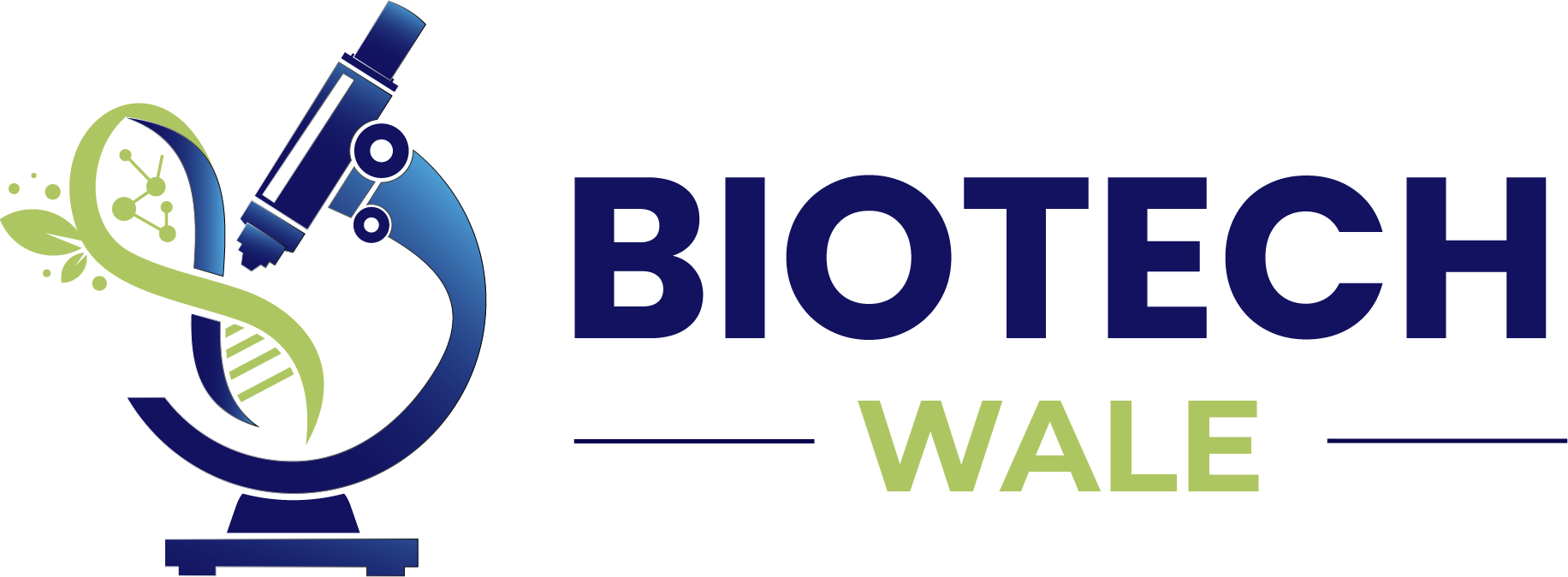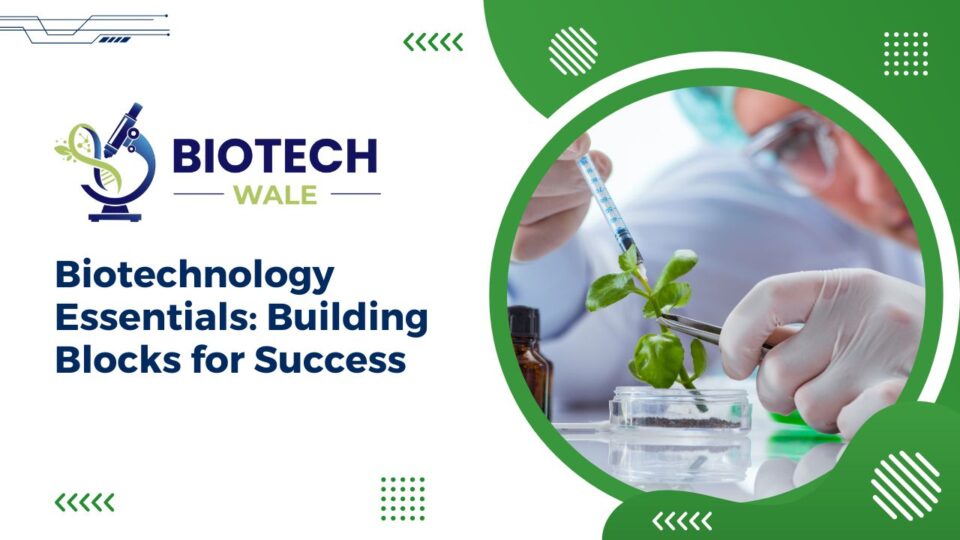Introduction to Biotechnology
Welcome to the fascinating world of biotechnology, where science meets innovation to revolutionize our understanding of life itself. From enhancing crop yields and developing groundbreaking medical treatments to cleaning up our environment, biotechnology is the driving force behind some of the most significant advancements in modern society. Join us on a journey through the building blocks of success in this dynamic field, as we explore its history, applications, challenges, and opportunities for those looking to make a mark in this ever-evolving industry.
The History and Evolution of Biotechnology
Biotechnology, a field that blends biology with technology, has a rich history dating back to ancient times. Early civilizations used fermentation techniques to produce foods like bread and cheese. Fast forward to the 20th century, where breakthroughs in genetics and molecular biology laid the foundation for modern biotechnology.
The discovery of DNA’s structure by Watson and Crick in 1953 marked a pivotal moment in biotech history. This milestone led to the development of recombinant DNA technology, allowing scientists to manipulate genes for various purposes. The 1970s saw the birth of genetic engineering techniques like gene splicing.
As biotechnology continued to advance rapidly, new areas such as genomics and bioinformatics emerged. Today, biotech innovations encompass everything from personalized medicine to sustainable agriculture practices. The evolution of biotechnology is a testament to human ingenuity and our endless quest for scientific progress.
Key Concepts and Terminology
Key concepts and terminology in biotechnology may seem complex at first, but they are the building blocks of understanding this fascinating field. From DNA to genetic engineering, these terms play a crucial role in shaping the advancements we see today.
Understanding the difference between genomics and proteomics is essential for comprehending how biotechnologists study genes and proteins. Recombinant DNA technology allows scientists to manipulate genetic material, leading to breakthroughs like insulin production using bacteria.
Terms like CRISPR-Cas9 have revolutionized gene editing by enabling precise modifications in an organism’s DNA sequence. Bioprocessing involves using living cells or their components to create valuable products such as vaccines or biofuels.
Comprehending key concepts and terminologies not only expands our knowledge but also opens doors to innovative research possibilities in biotechnology.
Types of Biotechnology: Agricultural, Medical, Environmental
Biotechnology plays a crucial role in various sectors, including agriculture, medicine, and the environment. In agriculture, biotechnology is used to enhance crop yield, resistance to pests and diseases, and improve food quality. Through genetic engineering, scientists can create genetically modified organisms that are more resilient and nutritious.
In the medical field, biotechnology has revolutionized healthcare with advancements like personalized medicine, gene therapy, and diagnostic tools. It allows for targeted treatments based on an individual’s genetic makeup. Biotechnological innovations have led to the development of vaccines, insulin production through genetically engineered bacteria or yeast.
Environmental biotechnology focuses on sustainable solutions for waste management, pollution control efforts,
and renewable energy production. By harnessing biological processes like bioremediation and biomimicry techniques, scientists aim to reduce environmental impact and promote eco-friendly practices.
Real-Life Applications of Biotechnology
Biotechnology has revolutionized various industries, with real-life applications that have transformed the way we live. In agriculture, genetically modified crops help increase yields and resist pests, ensuring food security for a growing population. Medical biotechnology has led to groundbreaking treatments like gene therapy and personalized medicine, improving patient outcomes and quality of life.
Environmental biotechnology plays a crucial role in waste management and pollution control through processes like bioremediation. It helps clean up contaminated sites and reduce our carbon footprint. Additionally, biotechnology is used in forensic science to analyze DNA evidence, aiding in criminal investigations and ensuring justice is served.
The practical applications of biotechnology continue to expand across diverse fields, showcasing its immense potential to address global challenges effectively.
The Importance of Biotechnology in Today’s World
In today’s fast-paced world, biotechnology plays a crucial role in addressing global challenges and improving the quality of life for people worldwide. From advancements in agricultural biotechnology that help enhance crop yields and food security to medical biotechnology that revolutionizes healthcare through personalized medicine, the impact of this field is undeniable.
Biotechnology also contributes significantly to environmental sustainability by offering solutions for waste management, renewable energy sources, and pollution control. It promotes innovation and drives economic growth by fostering research and development across various industries.
Moreover, biotechnology fosters interdisciplinary collaboration between scientists, engineers, and researchers to tackle complex problems efficiently. It enables us to explore new frontiers in science and technology while pushing boundaries to create a better future for generations to come.
Challenges and Ethical Considerations in the Field
Navigating the field of biotechnology comes with its fair share of challenges and ethical considerations. One major challenge is ensuring the safety and efficacy of biotechnological products before they are released to the market. This requires thorough testing and evaluation to minimize potential risks to human health and the environment.
Ethical considerations also play a crucial role in biotechnology, especially when it comes to genetic engineering and gene editing. Questions around consent, equity, and social justice arise as we delve into manipulating living organisms at the molecular level. Striking a balance between scientific advancement and ethical responsibility is key in moving forward responsibly in this field.
Additionally, intellectual property rights pose another challenge in biotechnology, as companies compete for patents on novel technologies. Balancing innovation with accessibility can be a delicate tightrope walk in ensuring that groundbreaking discoveries benefit society as a whole.
How to Pursue a Career in Biotechnology
Interested in pursuing a career in biotechnology? Here are some steps to set you on the right path. Consider your educational background – a degree in biology, chemistry, or related fields is typically required. Look for internships or research opportunities to gain hands-on experience and build your network within the industry.
Networking is key – attend industry events, conferences, and connect with professionals on platforms like LinkedIn. Stay updated on the latest advancements in biotechnology through scientific journals and online resources. Consider pursuing higher education or certifications to enhance your knowledge and skills.
Don’t underestimate the power of soft skills – communication, problem-solving, and teamwork are highly valued in this field. Tailor your resume and cover letter to highlight relevant experiences and qualifications. Be prepared for interviews by researching companies and practicing common interview questions.
Persistence is key when entering a competitive field like biotechnology – keep applying for positions that align with your goals and interests. Good luck on your journey towards a fulfilling career in biotechnology!
Top Universities and Programs for Biotechnology Studies
When it comes to pursuing a career in biotechnology, choosing the right university and program can make all the difference. Top universities around the world offer specialized programs designed to equip students with the knowledge and skills needed to excel in this rapidly growing field.
Institutions like Harvard University, MIT, Stanford University, and UC Berkeley are renowned for their cutting-edge biotechnology programs. These universities provide access to state-of-the-art facilities, expert faculty members, and valuable research opportunities that prepare students for success in the industry.
Programs such as bioinformatics, genetic engineering, pharmaceutical biotechnology, and environmental biotechnology are just some of the diverse options available for aspiring biotechnologists. Students can tailor their education based on their interests and career goals while gaining hands-on experience through internships and lab work.
By enrolling in top universities offering comprehensive biotechnology programs, students can set themselves up for a rewarding career in a field that is shaping the future of science and technology.
Latest Advancements and Innovations in Biotechnology
The field of biotechnology is constantly evolving, with new advancements and innovations pushing the boundaries of what’s possible. One exciting development is the use of CRISPR technology for gene editing, allowing scientists to make precise changes to DNA sequences. This breakthrough has the potential to revolutionize healthcare by offering targeted treatments for genetic diseases.
Another cutting-edge innovation in biotechnology is synthetic biology, where researchers design and construct biological parts, devices, and systems that do not exist in nature. This approach opens up a world of possibilities for creating biofuels, new materials, and even artificial organs.
Advancements in personalized medicine are also making waves in biotechnology. By analyzing an individual’s genetic makeup, doctors can tailor treatments to their specific needs, leading to more effective therapies with fewer side effects. The future of biotechnology holds endless opportunities for improving human health and addressing global challenges.
Conclusion: How to Thrive in the Ever-Evolving Field of Biotechnology
As the field of biotechnology continues to advance at a rapid pace, staying updated with the latest technologies and developments is crucial for success. Networking with professionals in the industry, participating in workshops and conferences, and pursuing further education are all key ways to thrive in this ever-evolving field.
By embracing continuous learning, honing your skills, and maintaining a passion for innovation and discovery, you can carve out a rewarding career path in biotechnology. Remember that adaptability, creativity, and perseverance will be your building blocks for success as you navigate the exciting opportunities that lie ahead in this dynamic industry. Here’s to a future filled with breakthroughs and advancements in the world of biotechnology!





Average Rating